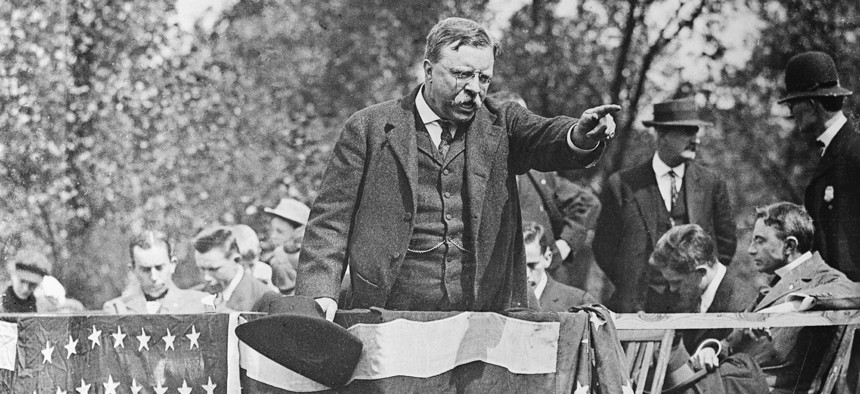Teddy Roosevelt’s Failed Bull Moose Campaign May Portend the Future of the GOP and Donald Trump
If Donald Trump decides to leave the Republican Party and start his own, Teddy Roosevelt and the presidential election of 1912 offer the GOP an ominous warning. Hint: The Democrats win.
What happens when a former president decides he wants his old job back, regardless of what stands in his way?
As Donald Trump launches his third run for the White House, it is useful to look back at another ex-president, Theodore Roosevelt, whose campaign to regain the office from his successor, William Howard Taft, divided the Republican Party and ensured the victory of Democrat Woodrow Wilson in the presidential election of 1912.
In my view as a scholar of 20th-century American history, Roosevelt’s sense of entitlement, moral narcissism and belief in his own indispensability led him to turn his back on his party.
The disastrous results may presage what awaits the GOP in 2024.
The Roosevelt charm and ego
There is little question that Roosevelt’s presidency from 1901 to 1909 was filled with successes – labor rights, anti-monopoly initiatives, the birth of environmentalism, consumer protection, democratic electoral reforms, a modern navy, even a Nobel Peace Prize.
As the first modern president, Roosevelt was an activist, a nationalist and a celebrity. And it is this last quality that may have defined Theodore Roosevelt most of all.
He reveled in his notoriety and visibility.
“My father,” his daughter Alice remarked, “always wanted to be the corpse at every funeral, the bride at every wedding and the baby at every christening.”
He was exuberant, vociferous and a showman – a showoff, his critics complained – whose favorite exclamation, “Bully,” expressed perfectly his almost childlike zest for life in the public eye.
“You must always remember,” one of his ambassadors ruefully observed, “that the president is 6 years old.”
A bitter fight between two former friends
It was thus wrenchingly difficult for Roosevelt, having made an impulsive promise not to run again, to turn over his office to his hand-picked successor, Taft.
Regret set in almost immediately, and as soon as Roosevelt returned from a yearlong trip to Africa and Europe in June 1910, he began to pick arguments with the cautious and uncharismatic Taft.
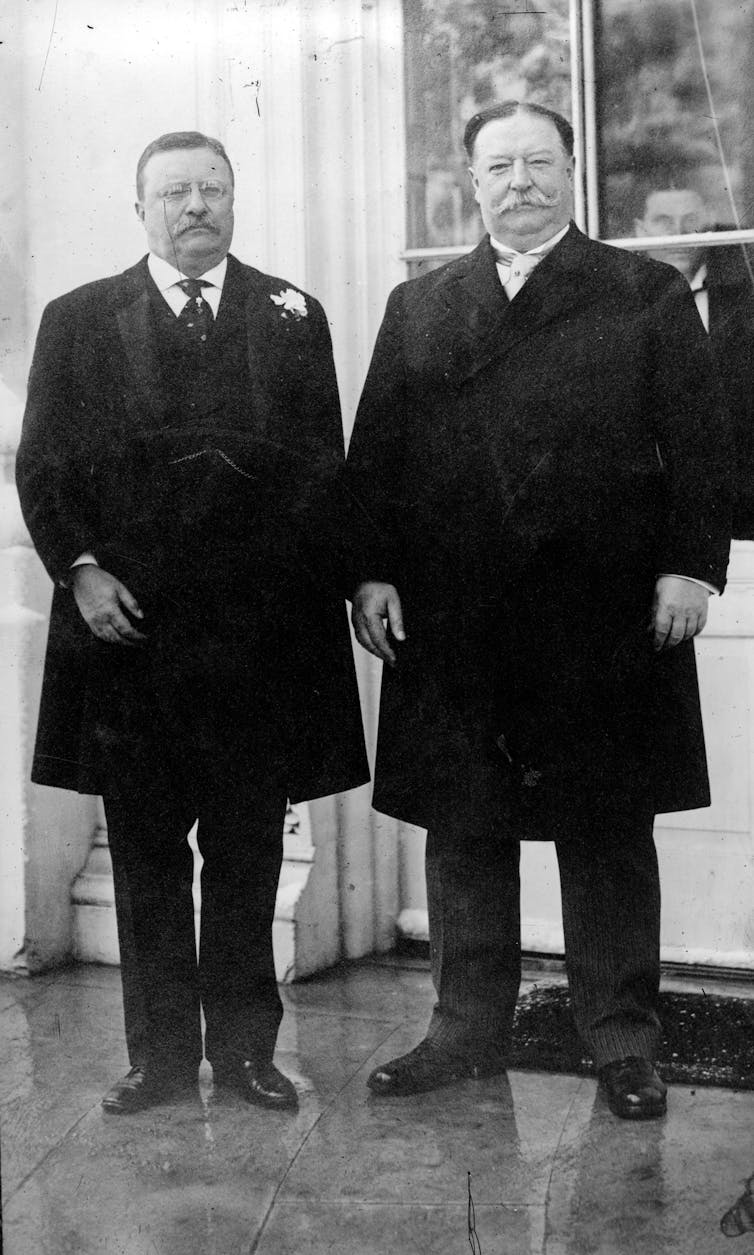
Some were imagined, others real, but they were essentially beside the point.
Roosevelt wanted the limelight that went with the presidency again. In early 1912, he announced that he would run against the incumbent president of his own party, a longtime close friend and colleague whose nomination he had engineered four years earlier.
Because Taft controlled the Republican Party machinery, Roosevelt’s path to the nomination ran through the new mechanism of state primaries, an early product of Progressive reform.
Roosevelt took nine of the 12 that were contested, but most of the delegates to the Republican convention were selected by local bosses, and Taft won almost all of them.
At the national convention in Chicago in June, Roosevelt broke with tradition and appeared in person. He challenged the credentials of Taft delegates, especially those from the South, which held a quarter of the total votes despite the Republican Party’s moribund position in the region at that point.
When his objections failed and Taft was nominated on the first ballot, Roosevelt could have done what virtually every defeated candidate for a party nomination does: swallow his disappointment and, however grudgingly, offer his support to the winner.
But that response was not in Roosevelt’s DNA.
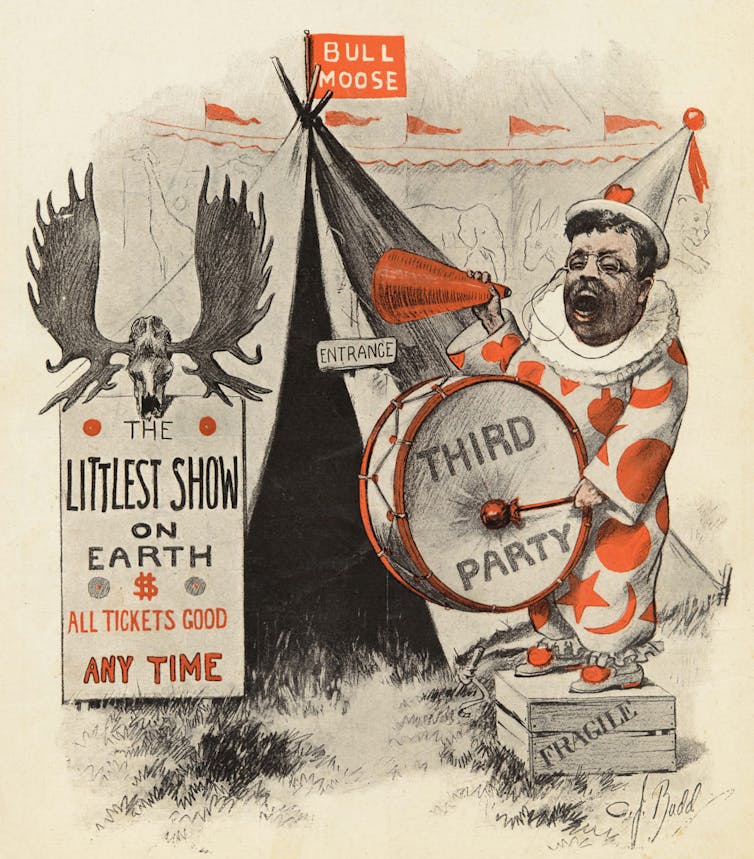
Embarrassed and furious, he charged that Taft had stolen the nomination through fraud and announced the formation of a new party as his personal vehicle.
Unofficially called the Bull Moose Party, the Progressive Party duly nominated Roosevelt at a hastily organized August convention, in an atmosphere replete with high moral dudgeon.
The delegates adopted “Onward, Christian Soldiers” as their anthem and heard their leader describe the upcoming campaign as an “Armageddon” and a “battle for the Lord.”
Roosevelt spent a great deal of his time on the general election campaign trail, during which he barely survived an assassination attempt, claiming that he had been cheated of the Republican nomination.
Roosevelt also stooped to personal vitriol, describing Taft as having “brains less than a guinea pig” and appearance-shaming the 300-pound-plus president as a “fathead.”
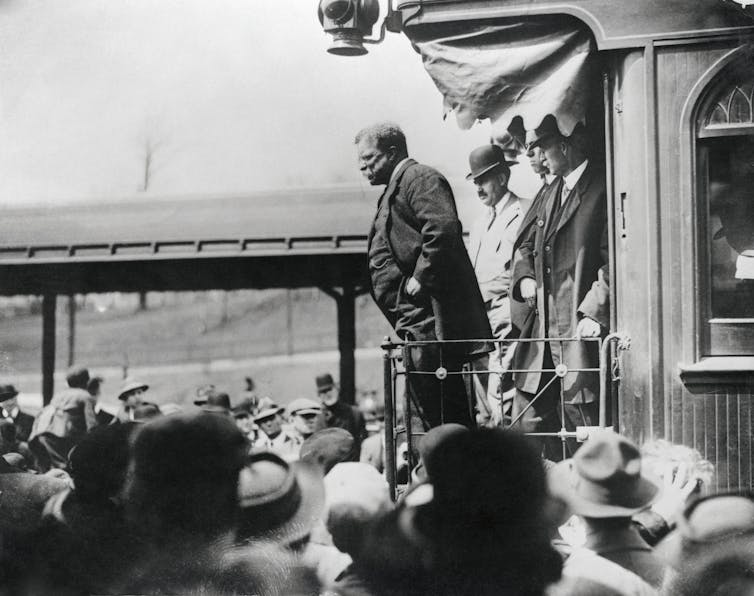
Taft was deeply hurt by the rift with his former friend. He ran a less than energetic campaign and was resigned to losing the general election almost as soon as he won the nomination.
Unlike Roosevelt, Taft’s career ambition was not to be president but chief justice of the Supreme Court, one that he achieved in 1921.
Does history repeat itself?
The result in November, as Roosevelt knew it would be, was a landslide victory for Wilson, who carried 40 of the then 48 states.
But between them, Roosevelt and Taft had taken over half the popular vote, a stark reminder of the importance of intraparty unity and of accepting defeat with grace and dignity.
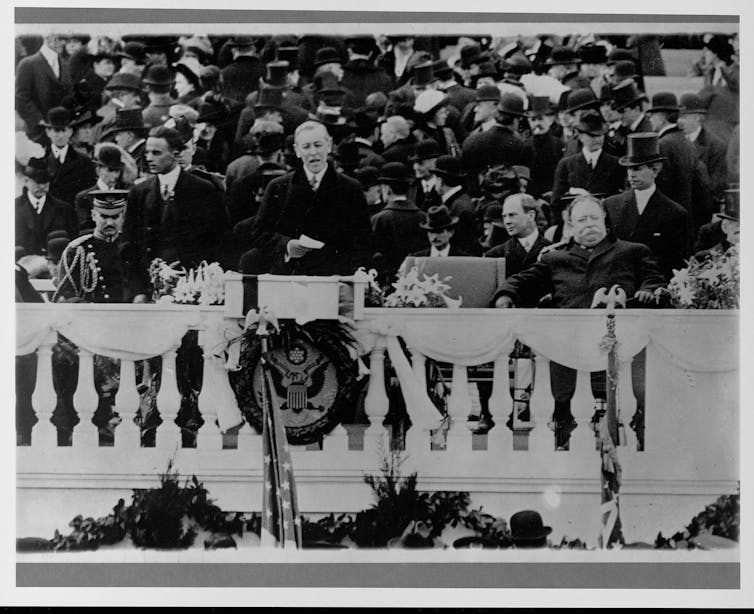
While unintended, Roosevelt’s self-aggrandizement had another consequence that still burdens his legacy with the weight of historical responsibility.
Wilson, a product of the antebellum South, carried the racial attitudes of his region and class into the White House.
He segregated parts of the federal civil service, offered praise to the racist film “Birth of a Nation” when it appeared in 1915, insulted and demeaned Black civil rights leaders on the rare occasions when he deigned to meet with them at all, and even refused to offer Black Southerners the federal jobs they had negotiated under Republican administrations.
While Roosevelt’s racial animosities were not as deeply held as those of Wilson, he nonetheless helped usher in an era of greater racial discrimination.
Mark Twain once said that “History never repeats itself, but it does often rhyme.”
As today’s sharply divided GOP looks to the 2024 election, Roosevelt’s promotion of his own ego and vanity over the institutional well-being of the political party through which he had become New York governor, vice president and president provides an ominous example of the tendency of history to rhyme.
Just as it was in 1912, the Republican Party is being held hostage to the whims of a former president who has shown that he will storm away from a game he loses, petulantly overturning the board as he leaves.
If Trump does so, I believe the continued existence of the Republican Party will be in jeopardy.
The GOP survived 1912.
It may not be as fortunate next time.
![]()
This article is republished from The Conversation under a Creative Commons license. Read the original article.


